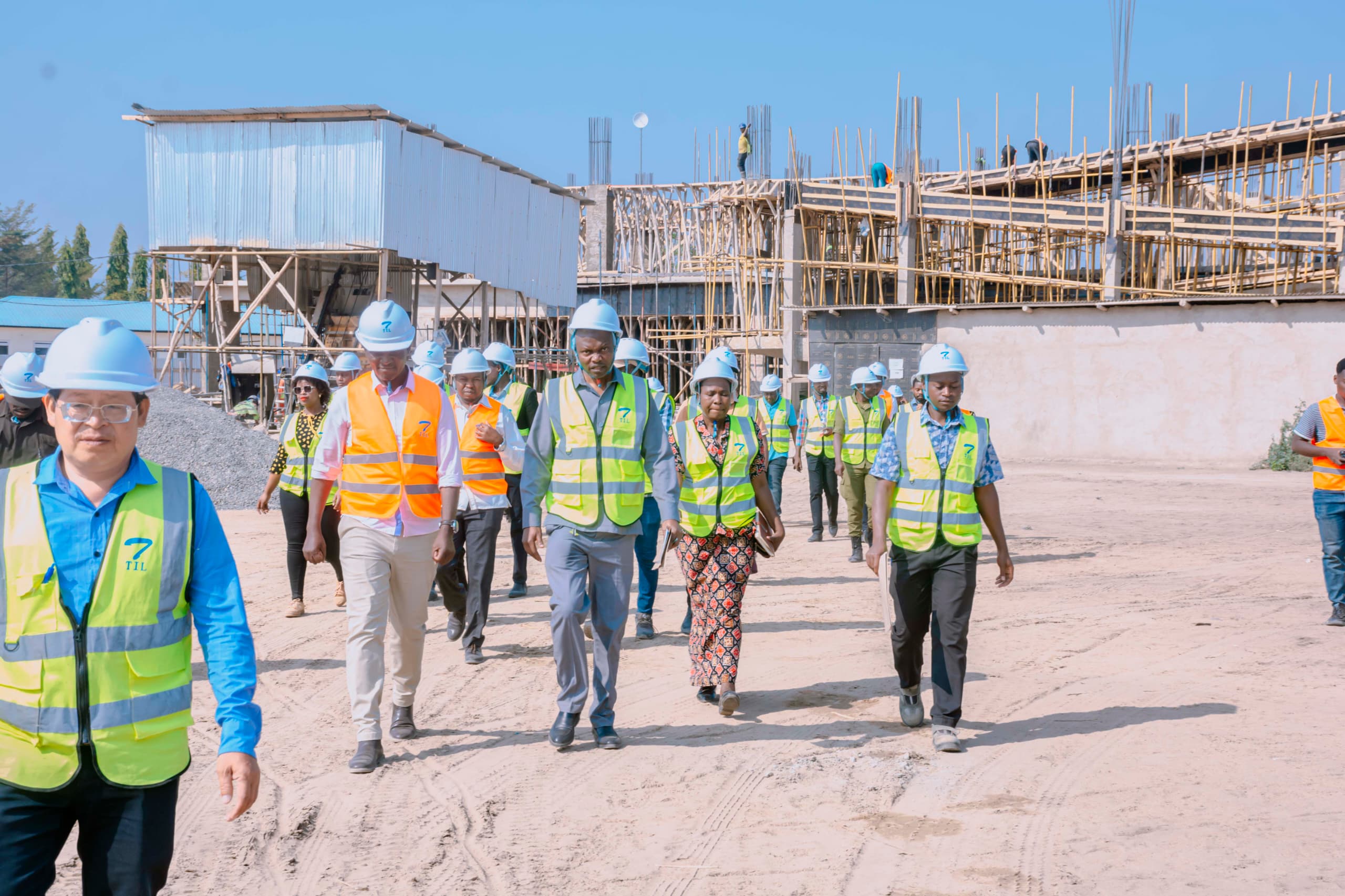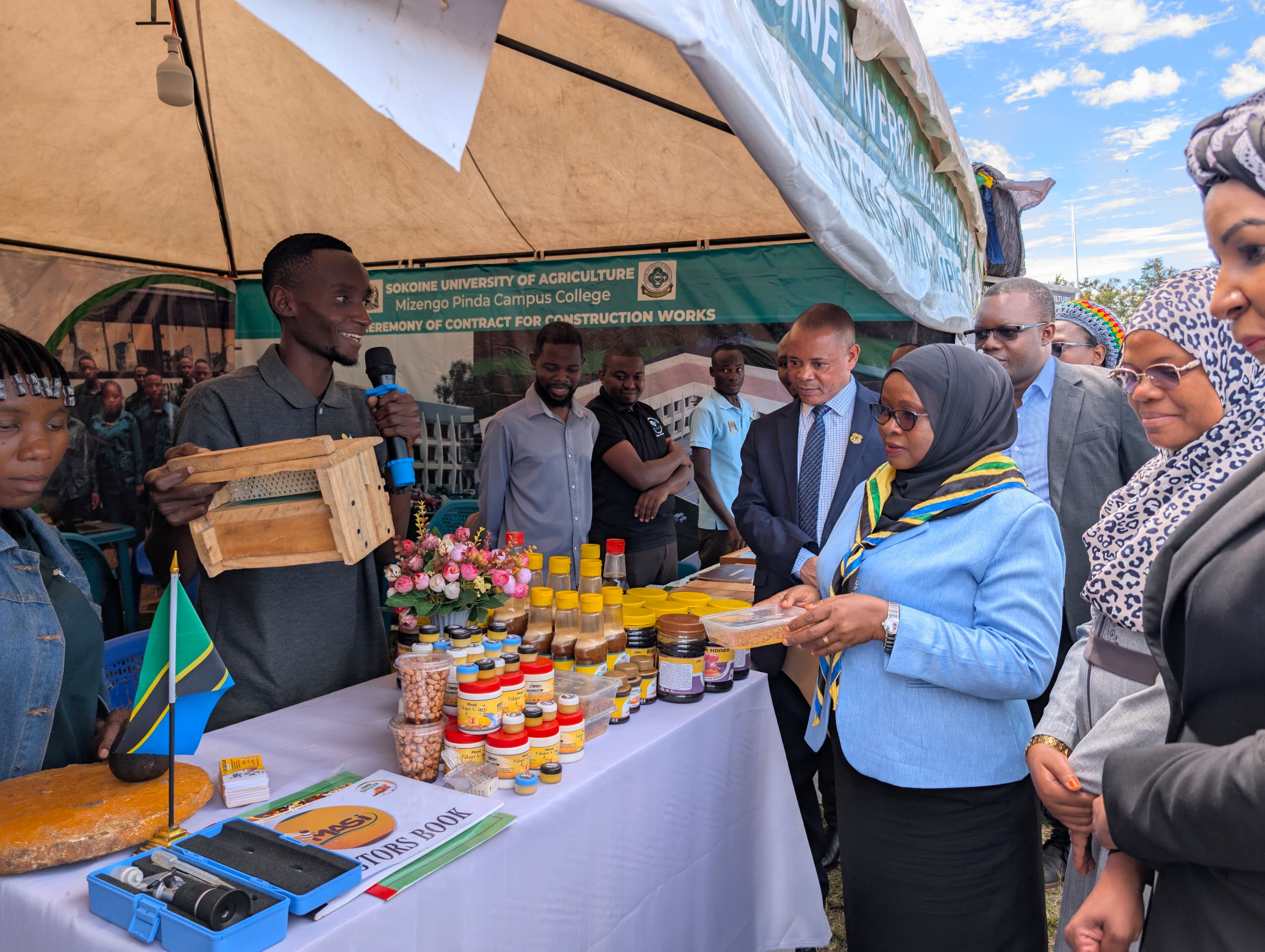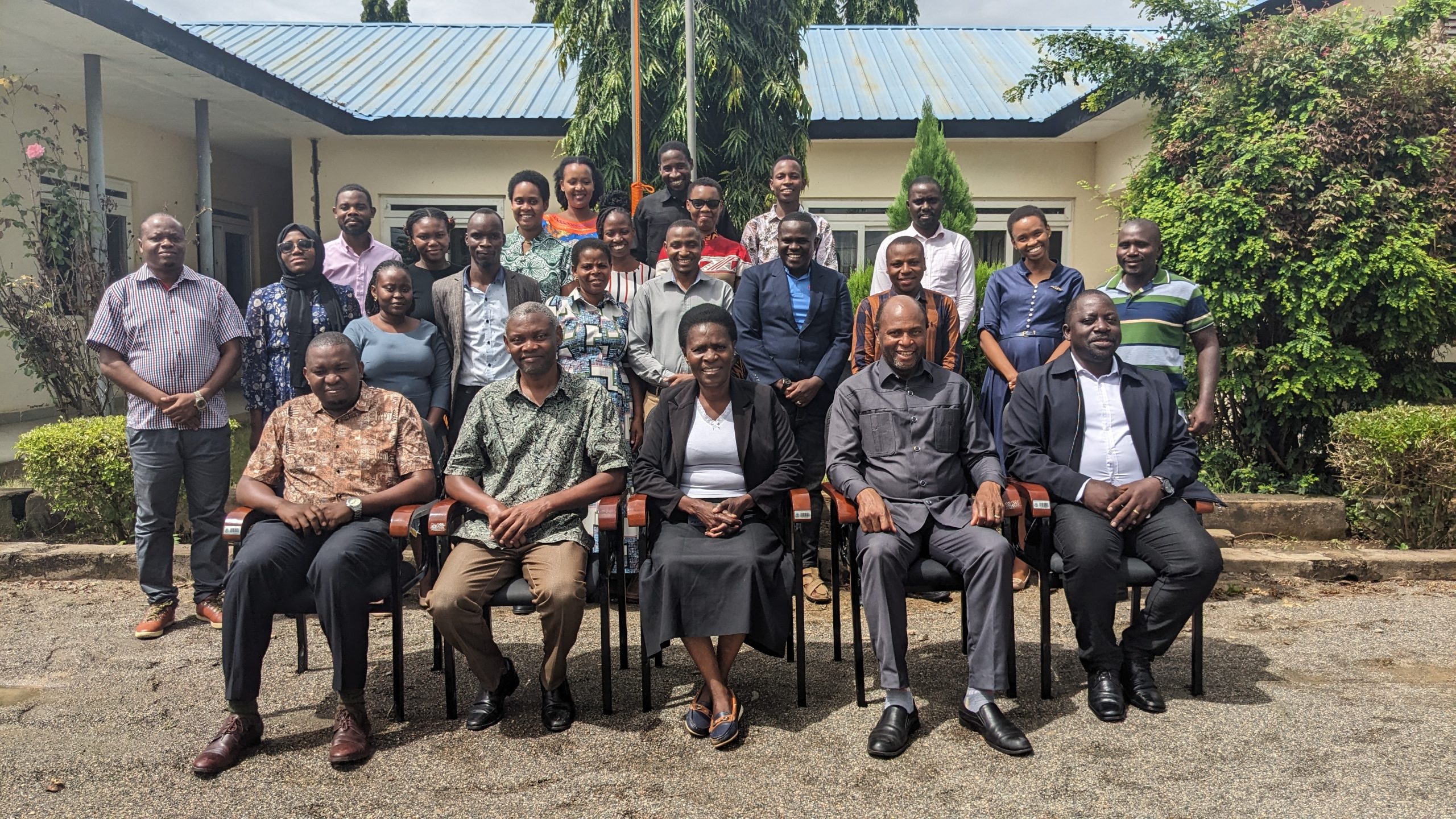Mizengo Pinda Campus, Sokoine University of Agriculture—21 November 2025
Sokoine University of Agriculture (SUA), Mizengo Pinda Campus, has concluded a week-long orientation programme aimed at equipping first-year students with the knowledge, values, and life skills they need to succeed at university and beyond.
The orientation week, held from 17 to 21 November 2025, brought together speakers from various government and non-government institutions to guide new students on academic, social, ethical, and professional issues as they begin their studies.
Presiding over the closing ceremony, Principal of Mizengo Pinda Campus, Prof. Anna Sikira, emphasized that the campus is committed to producing not only graduates with strong academic credentials but also principled leaders and responsible citizens.
“Our goal is not just to produce graduates with good degrees,” Prof. Sikira said. “We want to nurture leaders, professionals, and citizens of integrity with a strong moral, social, economic, and spiritual foundation who can make sound decisions at every stage of their lives.”
She reminded students that university life is the beginning of their professional journey and urged them to use their time wisely, balancing academic excellence with good behaviour, discipline, and respect for others.
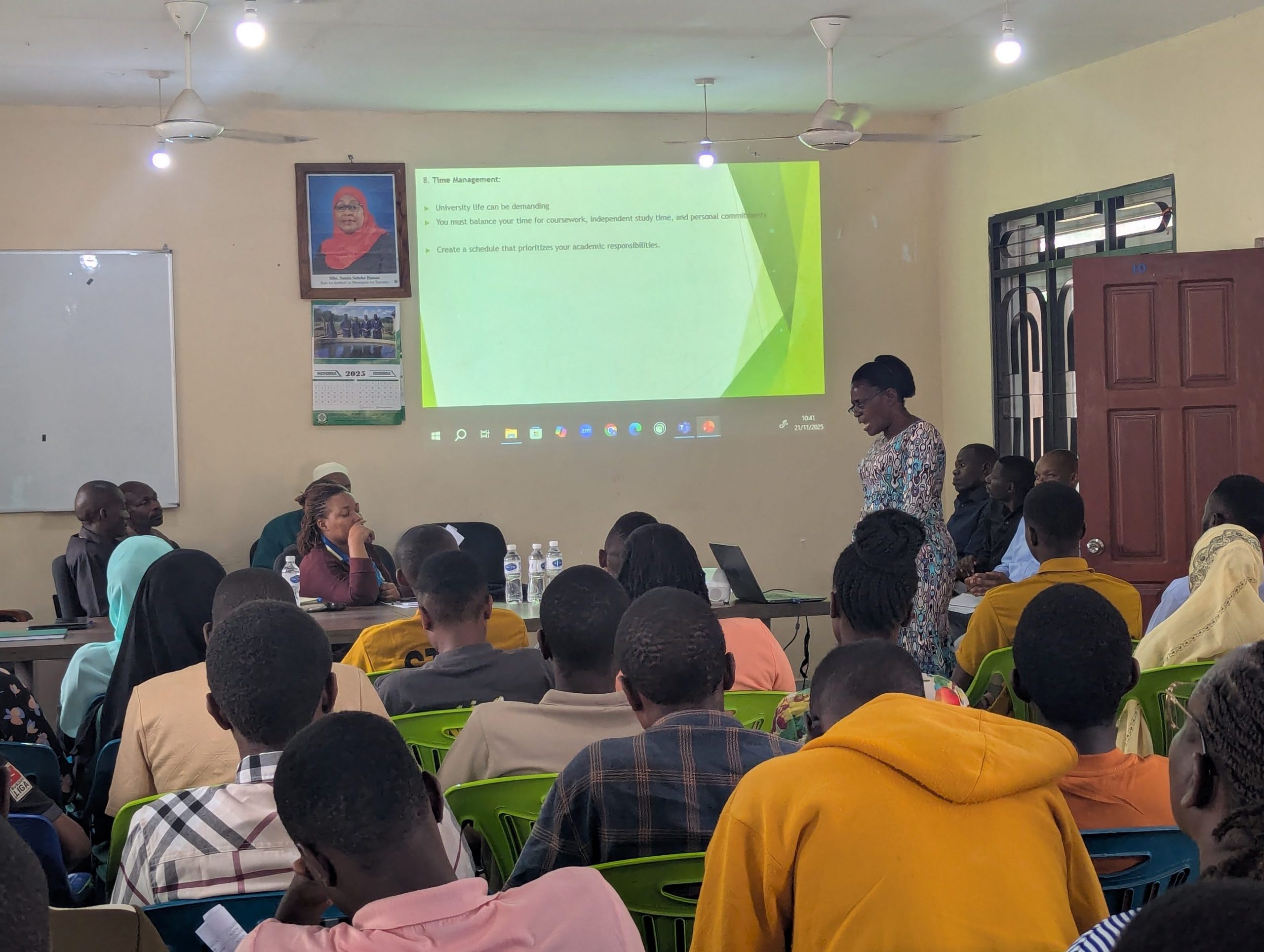
Prof. Anna Sikira addressing first-year students during the closing session of the orientation week at Mizengo Pinda Campus, Sokoine University of Agriculture.
The event was designed to prepare first-year students for life at university and after graduation. The programme focused on key areas including civic education, responsible use of technology, law and crime, the fight against corruption, financial literacy, and faith and morals.
Experts and leaders from different sectors shared real-life experiences and practical advice, helping students to understand both the opportunities and challenges they may encounter during their studies.
One of the major themes of the orientation was civic education. Facilitators highlighted the importance of students understanding their rights and responsibilities as citizens and as members of the university community.
Students were encouraged to respect the laws of the country and the regulations of the university, to participate constructively in community and national development, and to serve as role models for others through their conduct on and off campus.
Given the rapid growth of digital technology, a dedicated session focused on the responsible use of social media. Speakers explained both the benefits and risks of online platforms.
Students were urged to use social media in a productive way, for learning, networking, entrepreneurship and positive engagement, while avoiding misuse such as spreading false information, engaging in insults or harassment, or posting content that could damage their reputation or lead to disciplinary or legal action.
Legal officers who took part in the programme provided education on criminal offences and the law, especially those that students might encounter within or outside the campus environment.
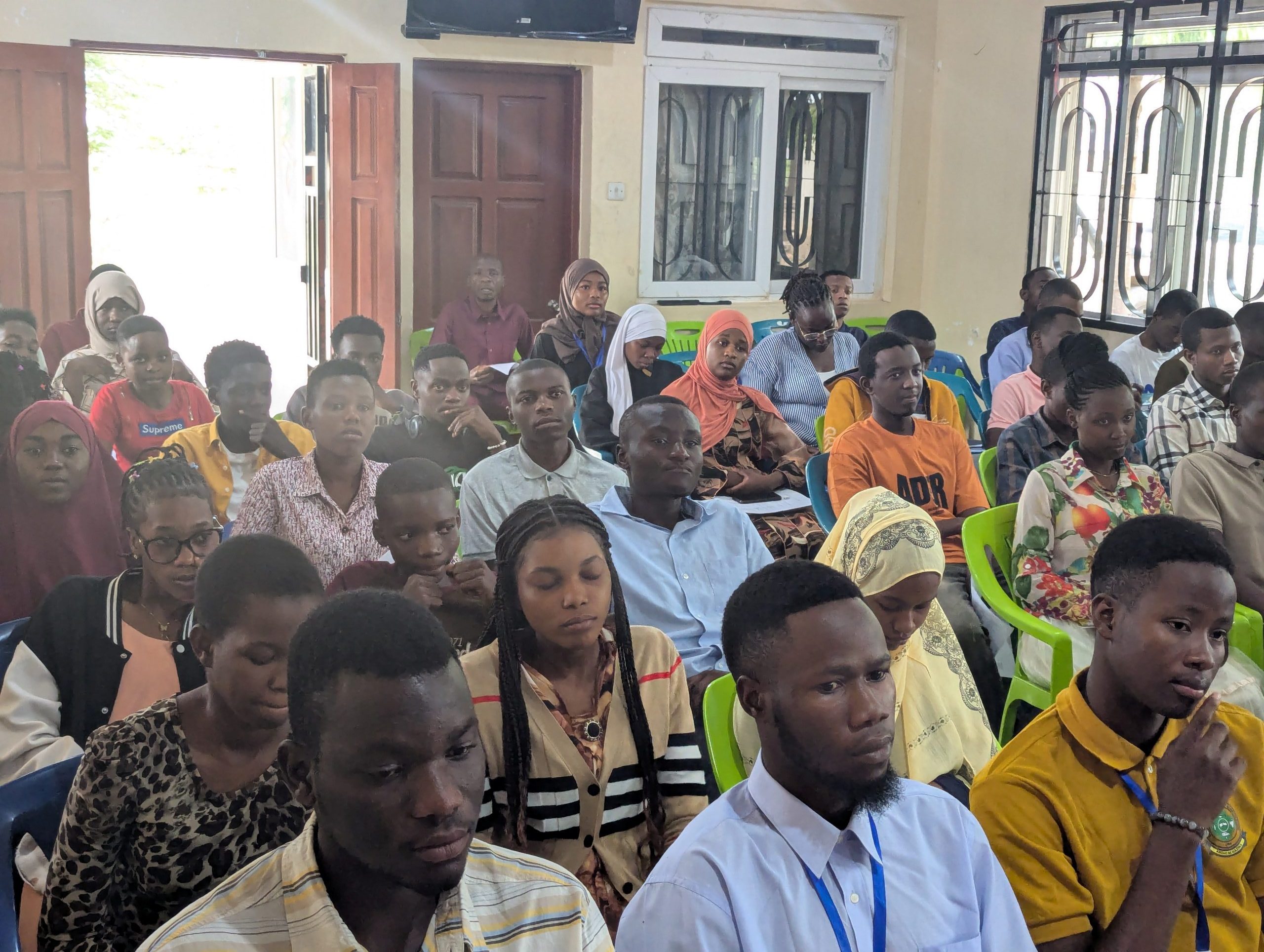
First-year students listening carefully during an orientation session at Mizengo Pinda Campus
They explained the consequences of engaging in crime or misconduct and called on students to live within the law at all times. The message was clear: poor choices can easily jeopardize a student’s safety, academic progress and future career prospects.
A representative from the Prevention and Combating of Corruption Bureau (PCCB) joined the orientation to speak about the dangers of corruption in society and within institutions of learning.
Students were taught how corruption undermines development and fairness and were encouraged to be vigilant and courageous in rejecting it. They were guided on how to recognize corrupt practices and how to report suspected cases through proper and safe channels, both within the campus and in the wider community.
Another important component of the orientation was financial literacy. Economists and financial experts discussed how students can plan and manage their finances responsibly, with particular attention to higher education loans.
Students were advised to budget carefully, avoid unnecessary spending and think long-term about their financial decisions. The sessions emphasized that responsible use of student loans and personal income today can contribute significantly to financial stability and success in the future.
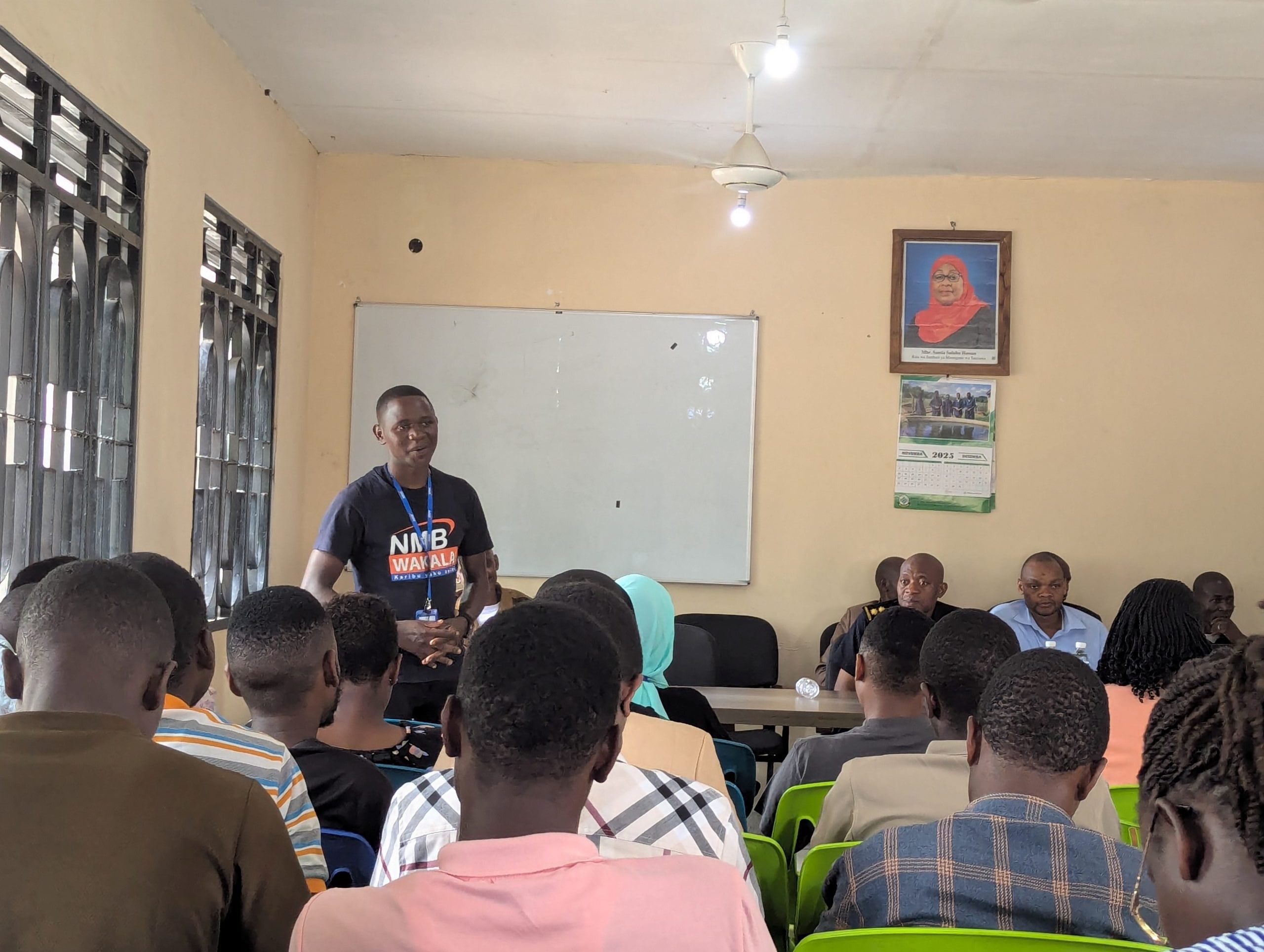
A financial expert from NMB Bank addresses first-year students on personal finance and loan management during orientation at Mizengo Pinda Campus
Religious leaders from various faith backgrounds also participated in the programme, offering spiritual guidance and moral encouragement.
They stressed the importance of good morals, respect, honesty, integrity and reverence for God throughout the period of study and in everyday life. Students were reminded that true success combines academic achievement with strong character and ethical behaviour.
In her closing remarks, Prof. Sikira expressed her deep appreciation to all the institutions and experts who contributed to the orientation week.
She thanked them for their readiness to share time and knowledge with the students, noting that their input had added great value to the holistic development of the new cohort.
First-year students who attended the sessions expressed satisfaction with the programme, saying it had opened their eyes to many important areas of life they had not previously considered in depth. Many reported feeling better prepared, more confident and more focused as they move into the academic phase of their university journey.
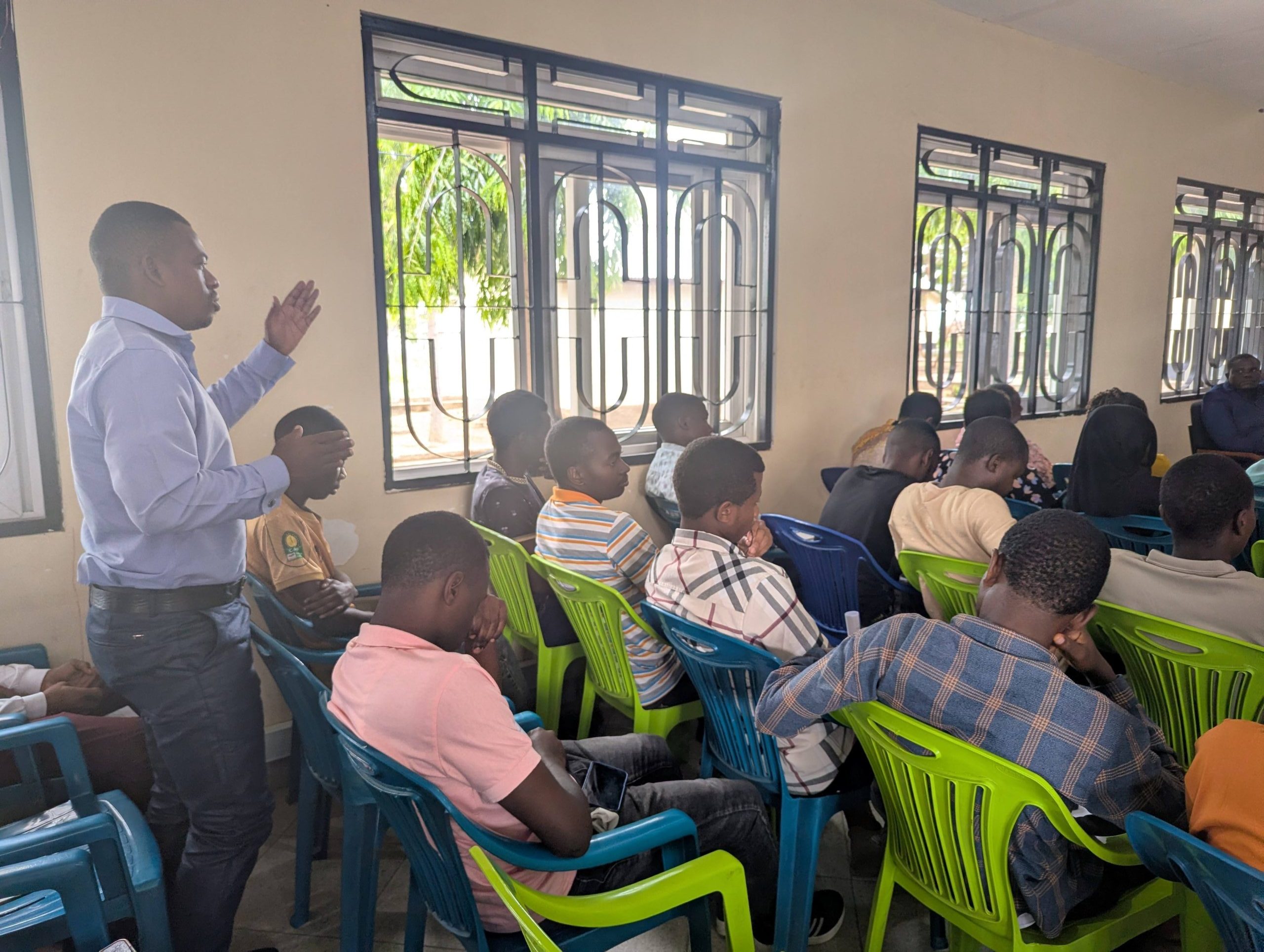
A student contributing to the orientation discussion and asking for clarification during a question-and-answer session
As classes officially begin on Monday 24 November, the leadership of Mizengo Pinda Campus expressed hope that the lessons learned during orientation week will guide the new students to live up to the core values of Sokoine University of Agriculture, including excellence in service delivery, integrity, transparency and accountability, diligence in their studies, innovation and continuous learning, throughout their time at the university and in their future careers.

